Whose vs. who’s: which word is right for your sentence? One is a pronoun, and the other is a contraction. Here, we’ll show you how to remember the difference between these two homophones. Also, you’ll see plenty of examples so you never doubt when to use which.
Main Whose vs. Who’s Takeaways:
- Whoseand who’s are homophones but they are not interchangeable.
- Whose vs. who’s are both correct but have different functions.
- The easiest way to know if you’re using the correct word is to replace the word with who is/who has/who was. If the sentence still makes sense, then who’s is correct. If not, then whose is probably correct.
- On one hand, whose describes possession.
- Use whose when referencing ownership.
- On the other hand, who’s is a contraction of who is or who has.
- Use who’s to replace who is or who has in casual conversations where contractions are appropriate.
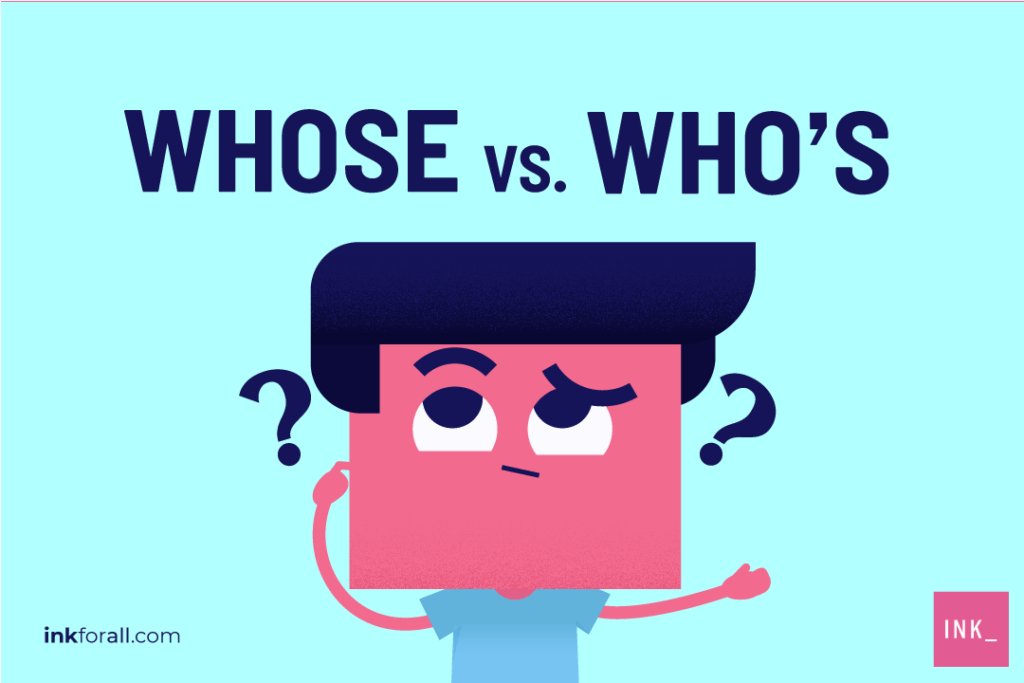

Whose vs. Who’s
When we see an apostrophe followed by the letter ‘s,’ we tend to associate this with ownership. And, most of the time, this rule holds true. However, almost every rule in the English language has an exception, and this one is no different.
For example, when it comes to it’s vs. its and whose vs. who’s, the word with the apostrophe ‘s’ is not the possessive one. Rather, it’s a contraction.
Whose and who’s are homophones, meaning these words sound the same. However, they have different spellings, meanings, and functions. On one hand, who’s is a contraction that links the pronoun who with the verb is or has. Like other contractions, it’s appropriate for casual conversations, but should be spelled out in formal writing.
Conversely, whose is a possessive pronoun, which expresses “to whom something belongs.” It often describes a person, but you can also use it for a pet or location.
- Whose definition:(pronoun) a question word used to determine which entity is responsible for an item
- Who’s definition:(contraction) who is; who was; who has
How to Remember the Difference Between Whose vs. Who’s
Here’s the easiest way to remember the difference between whose vs. who’s. Since who’s is a contraction for the phrases who is and who has, try replacing the word with who is or who has.
If the sentence still makes sense and is it still grammatically correct, then choose the contraction who’s (with the apostrophe ‘s’). Otherwise, whose (without the apostrophe ‘s’) is probably the word you want.


Who is Contraction in Grammar?
In English grammar, who’s (with the apostrophe ‘s’) is the contraction for who is, not the possessive pronoun whose (without the apostrophe ‘s’). Other examples of contractions, or shortened words made by combining multiple words, include don’t (do not), can’t (can not), you’ve (you have), and I’ll (I will).
Use the contraction who’s in casual speaking and writing. For more formal situations, it’s always best to spell out the contraction.
Whose vs. Who’s Sentences
Here’s how to use whose vs. who’s in a sentence:
Who’s or Whose Birthday?
The correct answer is: whose birthday. Why? Because whose is a possessive pronoun while who’s is a contraction of the phrases who is and who has. Therefore, the question is really: who does the birthday belong to?
Since this is a question about possession, we know that the possessive pronoun whoseis correct. Confirm this by replacing the word with who is (Who is birthday?). Since the sentence doesn’t make sense, we’re confident that whose is correct.
Whose Name or Who’s Name?
The correct way to phrase this is: whose name, notwho’s name. The real question is about who the name belongs to. In other words, this phrase is about possession. Since whose is a possessive pronoun, it makes more sense than who’s, which is the contraction for the phrases who is and who has.
You can easily check if whose is the correct answer by replacing the word with who is. Does the sentence still make sense? If so, then the contraction who’s is the correct word. If not, then the possessive pronoun whose is correct.


Who’s Idea of Whose Idea?
Here, the correct phrasing is whose idea, not who’s idea. The question is actually “to whom does this idea belong” or “who came up with this idea?” As a result, the phrase is about finding out who possesses the idea. Therefore, we need a possessive pronoun like whose instead of a contraction like who is.
You can check that whose is the correct answer by replacing the word with the phrase who is. If the sentence doesn’t make sense, then whose is correct. If the sentence does make sense, then who’s is correct.
Whose Fault or Who’s Fault?
Whether whose fault or who’s fault is correct depends on what you are trying to say. For example, if you are trying to understand which person the blame belongs to, then whose fault would be the correct way to phrase this. That is because whoseis a possessive pronoun, meaning we use it to show possession or ownership.
However, if there is a person named Fault and you are trying to understand who this person is, then who’s fault would be correct. This is because the who’s is a contraction of who is.
Who’s Phone or Whose Phone?
Whose phone is correct, not who’s phone. Because the phrase is about the person who owns or possesses the phone, we need a possessive pronoun.
One way to confirm that whose is correct is to replace the word with the phrase who is. If the sentence still make sense, then you need who’s, or the contraction of who is. However, if the sentence doesn’t make sense, then you need to use whose.
Who’s Son or Whose Son?
In this example, the correct phrasing is whose son, not who’s son. The reason is that the sentence refers to whom the son belongs. In other words, the sentence is about possession or ownership. So, we need to use a possessive pronoun.
Since whose is a possessive pronoun, it’s the correct choice. This is confusing because using an apostrophe + ‘s’ usually indicates possession. However, who’s is a contraction of who is, and not a possessive pronoun. As a result, you can check that whose is correct by replacing the word with who is. Since the sentence no longer makes sense, you know that who’s is incorrect.
More Whose and Who’s Sentence Examples
Here are examples of how to use whose vs. who’s in a sentence:
Ready for a Quick Whose vs. Who’s Quiz?
Whose vs Who's Question #1
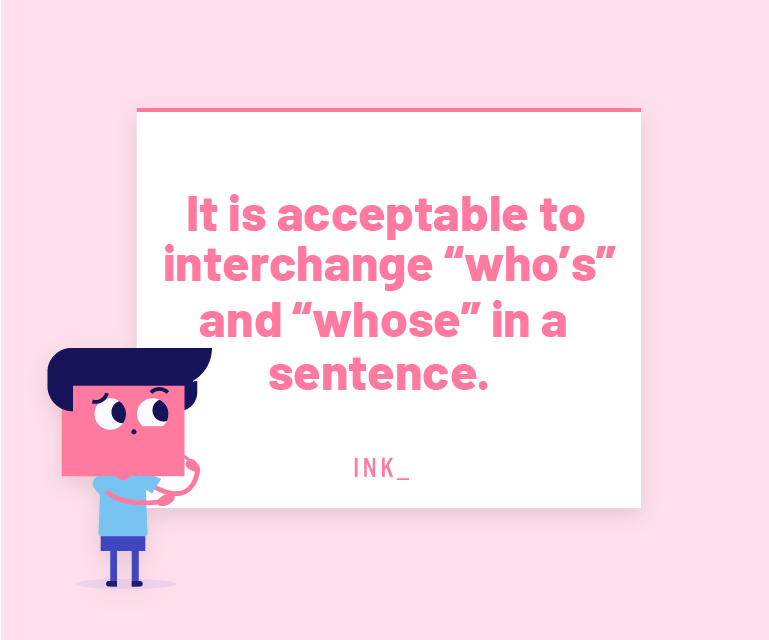

The answer is FALSE. “Whose” describes possession, while “who's” is a contraction for "who is" or "who has."
Whose Question #2
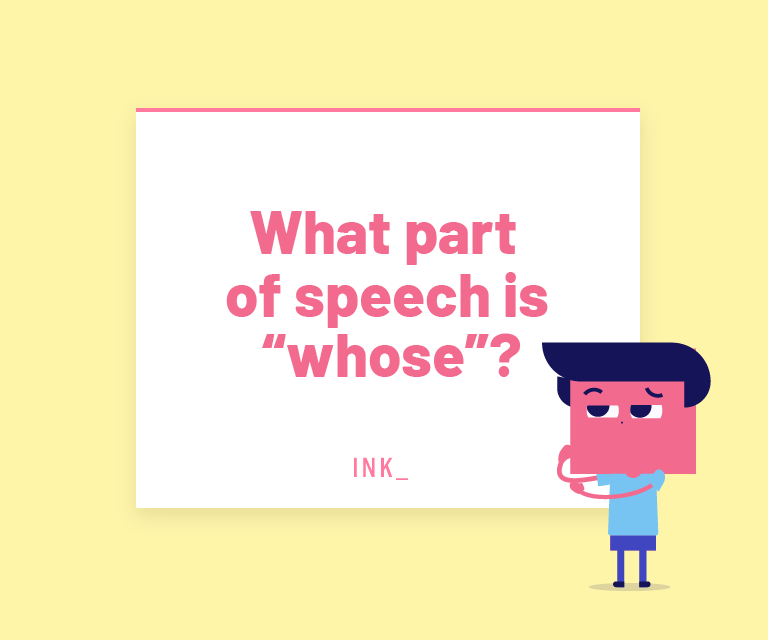

The answer is C. As a possessive pronoun, “whose” indicates that something belongs to someone.
Who's Question #3
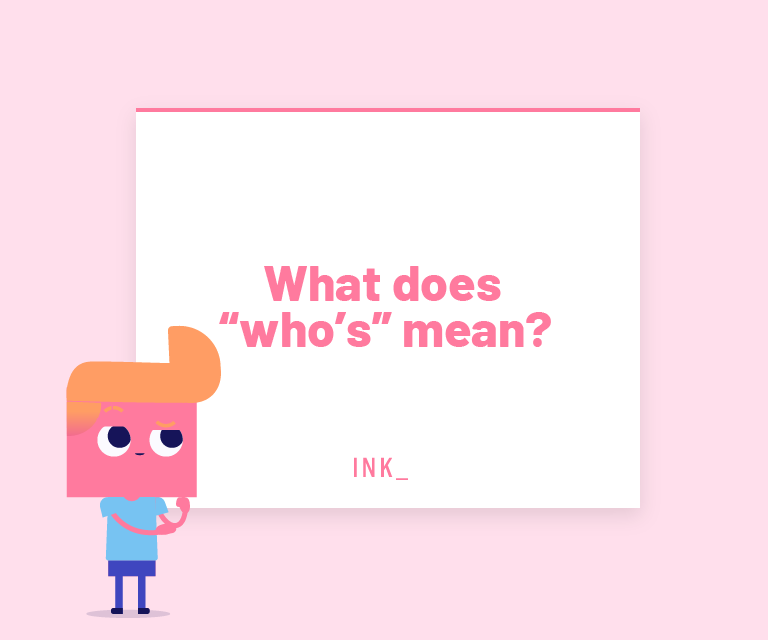

The answer is A. “Who's” is a contraction of “who is.”
Whose and Who's Question #4
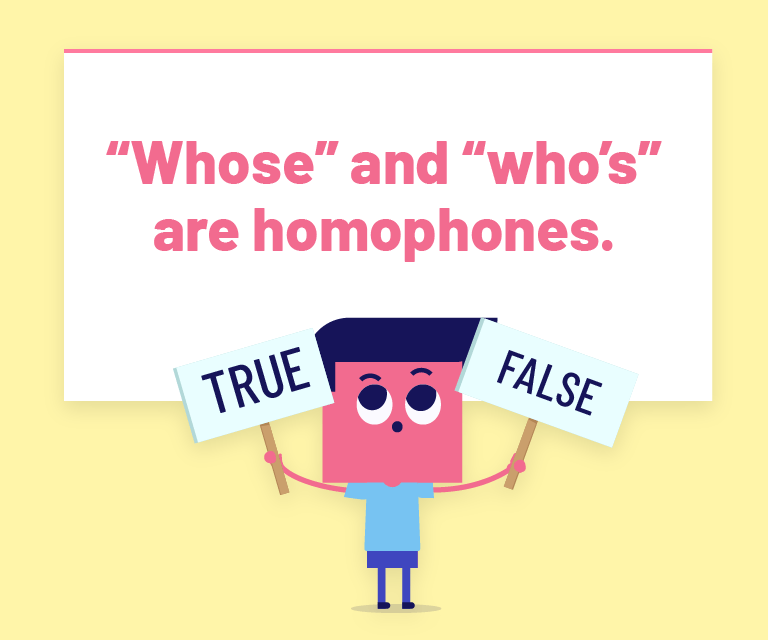

The answer is TRUE. Although both words sound alike, they are spelled differently.
Whose vs Who's Question #5
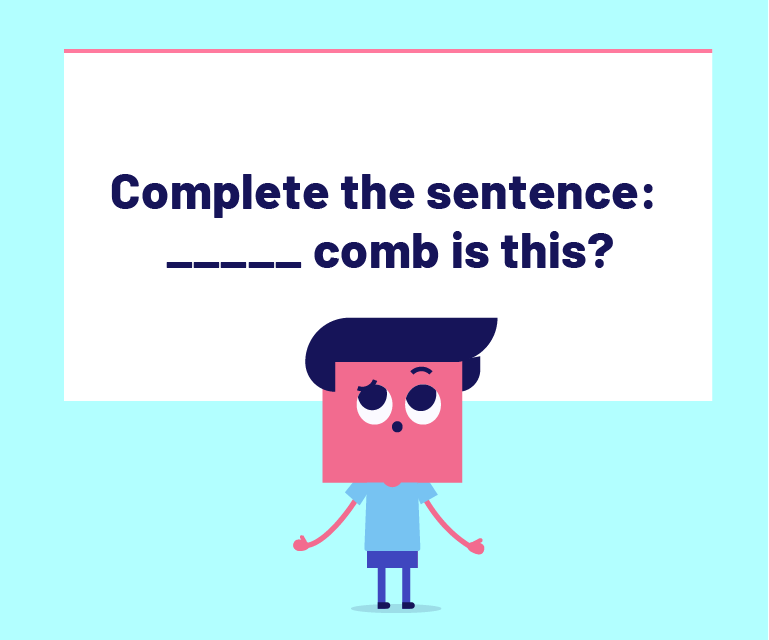

The answer is WHOSE. Whose is used to describe an entity that owns or possesses an item.
Whose or Who's Question #6


The answer is WHO'S. You can swap “who's” for “who is” in the sentence.

____your english teacher?
A. Whose b.wwhos
Solve this ans.
Hello Somya! The correct answer is “who’s.” Keep in mind that we use the contraction who’s when we would otherwise be saying “who is” or “who has” (e.g. Who is your English teacher? = Who’s your English teacher?). On the other hand, we use the possessive pronoun “whose” if we’re asking to whom something belongs (e.g. Whose English class are you attending?).